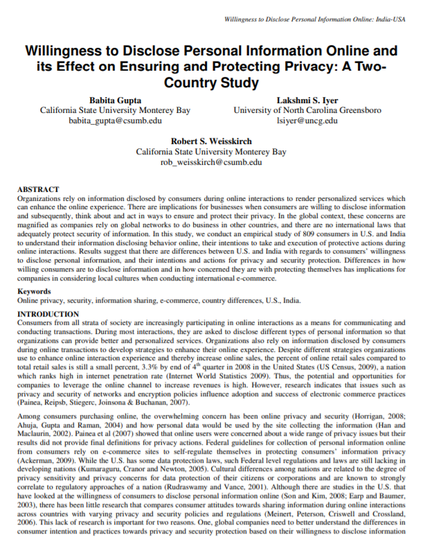
Organizations rely on information disclosed by consumers during online interactions to render personalized services which can enhance the online experience. There are implications for businesses when consumers are willing to disclose information and subsequently, think about and act in ways to ensure and protect their privacy. In the global context, these concerns are magnified as companies rely on global networks to do business in other countries, and there are no international laws that adequately protect security of information. In this study, we conduct an empirical study of 809 consumers in U.S. and India to understand their information disclosing behavior online, their intentions to take and execution of protective actions during online interactions. Results suggest that there are differences between U.S. and India with regards to consumers’ willingness to disclose personal information, and their intentions and actions for privacy and security protection. Differences in how willing consumers are to disclose information and in how concerned they are with protecting themselves has implications for companies in considering local cultures when conducting international e-commerce.
Available at: http://works.bepress.com/babita-gupta/27/
